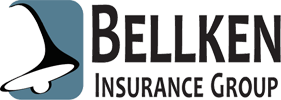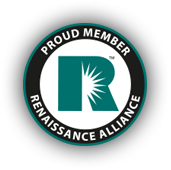General Liability Insurance in North Carolina
8:30am - 5:00pm Mon-Fri
Will Reply in 15min*
Index
Contact Us
Phone
Location
6900 Tavistock Lakes Blvd, Suite 400, Orlando FL 32827
General liability insurance is an important aspect of
protecting your business and personal assets in North Carolina. Understanding the ins and outs of this type of insurance is crucial to ensure that you have the right coverage to meet your needs. This article aims to provide a comprehensive overview of general liability insurance in North Carolina, including its definition, key components, state requirements, choosing the right insurance, handling claims and disputes, and the future of general liability insurance in the state.
Understanding General Liability Insurance
General liability insurance is a crucial aspect of protecting your business from potential financial losses. It provides coverage for third-party claims of bodily injury, property damage, personal injury, or advertising injury. In the unpredictable world of business, accidents and unexpected events can occur at any time. Without proper coverage, you run the risk of facing significant financial consequences that could potentially bankrupt your business.
Definition and Importance of General Liability Insurance
General liability insurance is designed to safeguard businesses from the financial burdens that may arise from various types of claims. These claims can include bodily injury, property damage, personal injury, or advertising injury caused by your business operations. By having general liability insurance, you can protect your business from potential lawsuits and the associated costs.
Imagine a scenario where a customer slips and falls in your store due to a wet floor. Without general liability insurance, you would be responsible for covering the medical expenses and any potential legal fees if the customer decides to sue. However, with the proper coverage, your insurance provider would handle these costs, allowing you to focus on running your business.
Key Components of General Liability Insurance
When evaluating your general liability insurance policy, it's essential to understand the key components that make up your coverage. By having a comprehensive understanding of these components, you can ensure that your policy adequately protects your business.
- General Bodily Injury and Property Damage Coverage: This component provides coverage for physical injuries or property damage caused by your business operations or products. For example, if a customer trips over a loose wire in your store and injures themselves, this coverage would help cover their medical expenses and any potential legal fees.
- Personal and Advertising Injury Coverage: This component protects against claims of defamation, libel, slander, copyright infringement, or false advertising. In today's digital age, where online reviews and social media play a significant role in shaping public opinion, this coverage is crucial. It helps protect your business from potential reputational damage and legal consequences.
- Medical Payments Coverage: This component covers medical expenses for injuries that occur on your business premises, regardless of fault. For instance, if a customer slips and falls in your store, this coverage would help cover their medical bills, regardless of whether your business was at fault for the accident.
- Products and Completed Operations Coverage: This component covers damages or injuries resulting from products you manufacture or services you provide. If a customer suffers an injury or property damage due to a faulty product or service, this coverage would help cover the associated costs.
- Additional Coverages: Depending on your business needs, additional coverages such as liquor liability, employee benefits liability, or professional liability may be necessary. These additional coverages provide specific protection tailored to the unique risks your business may face.
By understanding these key components, you can ensure that your general liability insurance policy adequately addresses the potential risks your business may encounter. It's crucial to review your policy regularly and consult with an insurance professional to ensure that your coverage aligns with your business's evolving needs.
North Carolina's General Liability Insurance Requirements
State Regulations for Business Insurance
North Carolina has specific regulations regarding business insurance, including general liability insurance. It is important to be aware of these regulations to ensure compliance and avoid potential penalties.
When it comes to protecting your business, general liability insurance is a crucial consideration. While it may not be legally required for all businesses operating in North Carolina, having this coverage can provide you with peace of mind and financial protection.
General liability insurance is designed to protect your business from claims of bodily injury, property damage, and personal injury. It can cover legal fees, medical expenses, and damages awarded in a lawsuit, helping to safeguard your assets and minimize financial risks.
Minimum Coverage Requirements in North Carolina
While general liability insurance is not mandatory, certain businesses or professionals in North Carolina may be required to carry specific liability coverages. For example, contractors may need to carry contractor general liability insurance to meet licensing requirements.
Contractor general liability insurance provides coverage for accidents, injuries, and property damage that may occur during construction projects. It is an essential safeguard for contractors, ensuring that they are protected from potential lawsuits and financial losses.
Other professions that may have specific liability coverage requirements in North Carolina include healthcare providers, architects, engineers, and real estate agents. These professionals often deal with unique risks and are therefore required to carry specialized liability insurance to protect themselves and their clients.
Even if you are not legally obligated to carry general liability insurance, it is still essential to assess the risks associated with your business operations and consider obtaining adequate coverage to protect your assets. Without insurance, your business could be vulnerable to lawsuits, property damage claims, and other financial liabilities that could have a significant impact on your bottom line.
When selecting a general liability insurance policy, it is important to carefully review the coverage options and exclusions. Consider working with an experienced insurance agent who can help you identify the specific risks your business faces and recommend appropriate coverage limits.
Remember, having general liability insurance is not just about meeting legal requirements; it is about protecting your business and ensuring its long-term success. By investing in comprehensive insurance coverage, you can focus on growing your business with confidence, knowing that you have a safety net in place.
How to Choose the Right General Liability Insurance in North Carolina
Choosing the right general liability insurance policy for your North Carolina business requires careful evaluation of several factors. It's important to consider these factors to ensure that you have adequate coverage and protection for your business.
Factors to Consider When Selecting Insurance
Here are some key factors to consider when selecting general liability insurance:
- Business Size and Industry: The size and nature of your business operations will impact the level of coverage you require. For example, a small retail store may have different insurance needs compared to a large manufacturing company. It's important to assess the specific risks associated with your industry and choose a policy that provides adequate coverage.
- Policy Limits and Deductibles: Assess the coverage limits and deductibles to ensure they align with your financial capabilities and potential risks. Higher coverage limits can provide greater protection but may also result in higher premiums. Similarly, higher deductibles can help lower your premiums but may increase your out-of-pocket expenses in the event of a claim.
- Additional Coverages: Consider any additional coverages that may be necessary based on your business activities or potential liability exposures. Depending on your industry, you may need specialized coverage such as product liability insurance or professional liability insurance.
- Insurance Provider Reputation and Financial Stability: Research and choose an insurance provider with a strong reputation and financial stability. It's important to select a provider that will be able to fulfill their obligations in the event of a claim. Look for insurance companies with good customer reviews and ratings from independent rating agencies.
- Cost: Compare quotes from multiple insurance providers to find the best balance between coverage and cost. While cost is an important factor, it should not be the sole determining factor. It's essential to consider the coverage provided and the reputation of the insurance provider.
Understanding Insurance Quotes and Premiums
When obtaining insurance quotes, it is important to understand the components that influence premiums. This knowledge will help you make an informed decision and choose the best policy for your business.
- Risk Factors: Insurance providers assess various risk factors associated with your business to determine the likelihood of claims. These risk factors may include industry risks, past claims history, and business location. It's important to provide accurate and detailed information about your business to obtain an accurate quote.
- Policy Coverage Limits: Higher coverage limits typically result in higher premiums. It's important to carefully evaluate your coverage needs and choose limits that provide adequate protection without being excessive.
- Deductibles: Deductibles are the amount you must pay out of pocket before the insurance coverage kicks in. Higher deductibles can reduce premiums but may increase your out-of-pocket expenses if a claim arises. Consider your financial capabilities and potential risks when choosing a deductible amount.
- Business Size and Revenue: Larger businesses or those with higher revenue may have higher premiums due to increased potential risks. Insurance providers consider the size and revenue of your business when calculating premiums.
Consider these factors when evaluating insurance quotes to make an informed decision that suits your budget and coverage needs. It's important to review and compare multiple quotes to ensure you are getting the best coverage at a competitive price.
Claims and Disputes in General Liability Insurance
Common Insurance Claims in North Carolina
Insurance claims can arise for various reasons, and it is essential to understand the common types of claims that businesses in North Carolina may face:
- Slip and Fall Accidents: Claims may result from injuries due to slips, trips, or falls on your premises.
- Product Liability Claims: Claims can arise from injuries caused by a malfunctioning or defective product.
- Advertising Injury Claims: Claims may result from allegations of false advertising, defamation, or copyright infringement.
These are just a few examples, and your specific industry may have additional risks that you need to consider.
Dispute Resolution and Legal Recourse
In the event of a dispute or disagreement with your insurance provider, there are several steps you can take to resolve the issue:
- Review Your Policy: Familiarize yourself with the terms and conditions of your policy to understand your rights and obligations.
- Communicate with Your Insurance Provider: Contact your insurance provider to discuss the issue and seek resolution.
- Mediation and Arbitration: Mediation and arbitration can be effective methods to resolve disputes without resorting to litigation.
- Legal Recourse: If all else fails, you may need to consult with legal counsel to explore litigation options.
It is crucial to maintain clear and open communication with your insurance provider throughout the process to ensure a smooth resolution.
The Future of General Liability Insurance in North Carolina
Potential Changes in Insurance Laws
Insurance laws are subject to change, and it is important to stay informed about potential developments that may impact general liability insurance in North Carolina. Consult with your insurance provider or industry associations for updates on legislative changes that may affect your coverage requirements.
Preparing for Future Insurance Needs
As your business grows and evolves, it is essential to regularly reassess your insurance needs. Review your policies annually and whenever significant changes occur to ensure that you have adequate coverage to protect your business and personal assets.
As the business landscape changes and new risks emerge, exploring additional insurance coverages or enhancements, such as cyber liability insurance, may be necessary to address evolving threats.
In conclusion, general liability insurance is a crucial aspect of protecting your business in North Carolina. Understanding the definition, key components, state regulations, selecting the right insurance, handling claims and disputes, and staying informed about potential changes will help you make informed decisions to safeguard your business and minimize financial risks. Assess your specific business needs carefully and consult with reputable insurance providers to tailor an insurance policy that matches your requirements.
